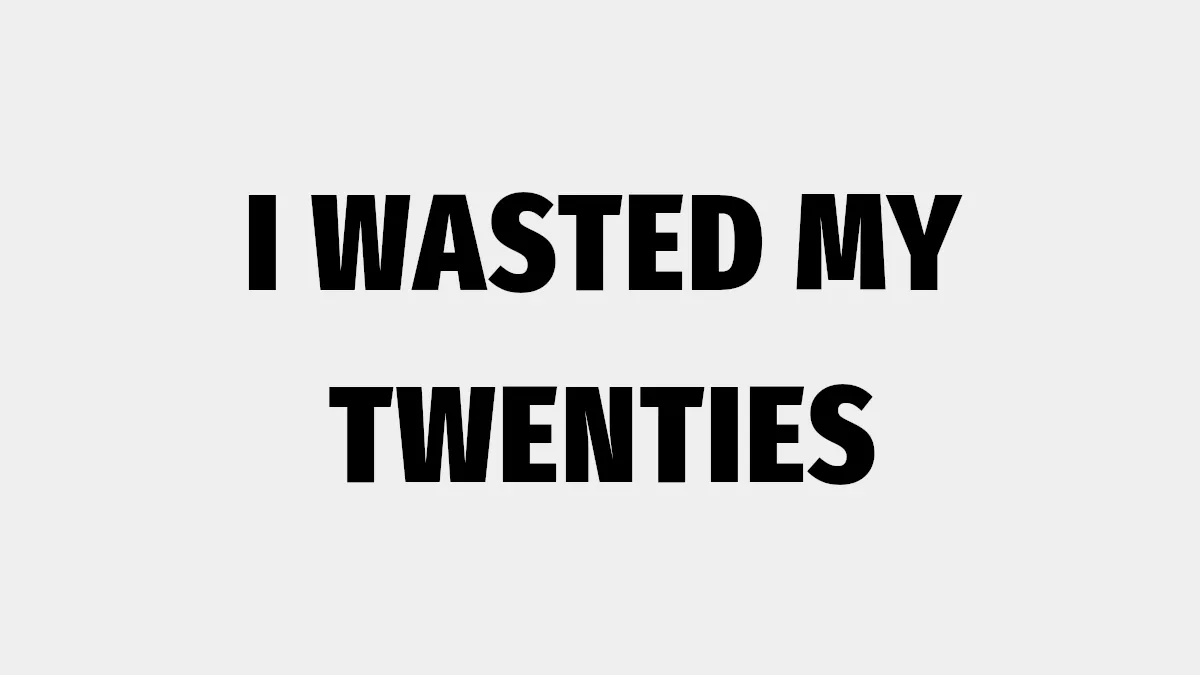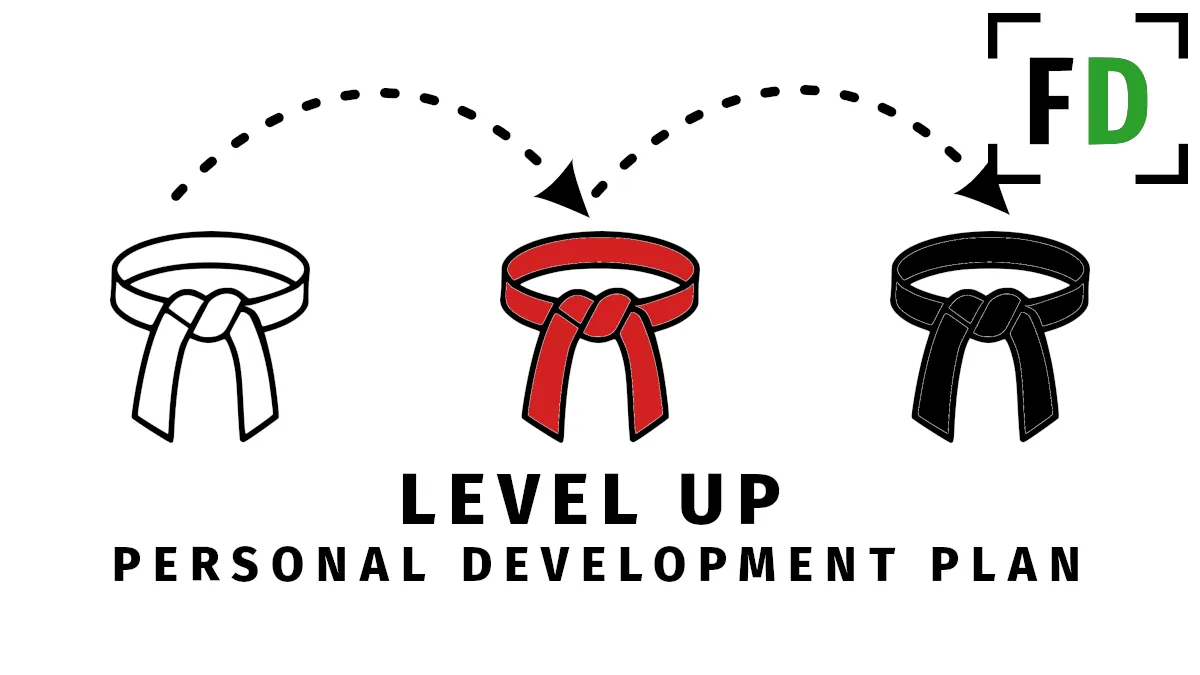Everyone wants to be successful, and if you’re reading this, you’re willing to actually do something about it. Most of us focus on how we could do more and be more. But at some point, you must go back and look at who you are. Part of becoming who you could be is removing all the junk from your personality. Stopping your bad habits so they’ll stop holding you back.
How to Break Your Bad Habits
Unfortunately, there is no one-size-fits-all method to break bad habits, so look below for specific solutions to break the habits listed there.
There are some rules you can apply and some tips that will make quitting those ingrained and habitual habits of life. Whether it’s something as serious as how to quit smoking cigarettes or as trivial as nail biting or thumb sucking.
- Find your Cues
- Choose a substitute
- Make it inaccessible when you’re stressed or tired
- Positive self-talk
Step 1: Find Your Cues and Triggers
Simply being aware of what triggers your bad behavior pattern is half the battle. If you consistently order junk food in the evenings, because you’re too tired to cook, understanding that will instantly give you solutions:
- Premake healthy meals
- Buy ready-to-eat healthy meals
It’s unrealistic to think that you can change so much that you’ll somehow be able to cook a healthy meal every night despite being exhausted. You might do it for a few days if you’re really motivated but you didn’t solve the problem.
Step 2: Choose a Substitute
Changing your habits instead of quitting cold turkey is much easier, don’t wait till you’re craving to pick a substitute.
According to Roy F. Baumeister, author of Willpower: Rediscovering the Greatest Human Strength, the energy you use to resist doing a bad habit, is the same energy you need to make decisions. So when you’re low on willpower it’s not the right time to think of an alternative. Do that beforehand.
Step 3: Disrupt Tempting Habits and Routines
Slipping and giving in to cravings is easiest when willpower is low, which might be at the end of a long day, when stressed, or when you haven’t slept well. Creating a barrier to your bad habits at those moments when you’re most likely to fall back into old habits is a smart move.
- Block Access to certain websites, apps, or phone numbers
- Take a different route home avoiding the liquor store or junk food restaurants
- Remove temptations from your house
- Use time-locked containers to control usage (put a Playstation controller in there and lock it until later in the day)
Step 4: Positive Self-Talk and Visualization
It might sound too woo-woo to you, but talking about yourself positively is practical and can have a huge effect. Look at the difference between these two responses when someone asks if you want a cigarette.
- “I’m a smoker but I’m trying to quit”
- “I don’t smoke, I quit yesterday.”
You don’t have to get into daily self-affirmations and meditative visualization exercises, simple positive reinforcement in your everyday speech can go a long way to creating a new self-image and reinforcing your choice to stop smoking or other unhealthy habits.
15 Bad Habits That Hold You Back
1. Picking Up Your Phone During Conversation
I know this has happened to you. You’re talking to someone, and mid-conversation, they pick up their phone and completely zone out. They think they can check their notification and listen to you simultaneously, but they can’t. So inevitably, they miss everything you say and ask you to repeat yourself.
If you had a pregnant wife and were concerned, she might go into labor at any moment. You could be forgiven for this social faux pas. But if you check your phone while I’m talking, I can only assume you don’t want to hear what I’m saying. Do it too often, and you will be “real-life defriended.”
You might think this is acceptable behavior if your friends do it to you and you do it back like a social contract everyone has signed. In truth, however, you’re just letting people disrespect you and being disrespectful back. While your friends may tolerate this, anyone, who doesn’t care to repeat themselves won’t.
2. Negative Self-talk or Excessive Worrying
In this post-pandemic world, anxiety is rife and self-confidence is lower than ever, Psychology Today reported that 85% of people worldwide have low self-esteem.
Low self-esteem can manifest in the way you talk about yourself, such as “I always mess that up,” or “I’ve never been good at XYZ.” Although it can seem fake, simply changing your language can have real effects on the way you feel. Instead, try saying “I’ll get it right this time,” or “I’m getting better at XYZ.”
When you do say something negative about yourself, add a “but” at the end. “I always mess that up….but I’ll get it right next time.”
In the moment you won’t be able to change your language, but it only needs a small amount of planning and slowly you can remove the negative self-talk from your inner or outer dialog.
- Listen to how your talk about yourself.
- Create positive alternatives.
- Use “but” when you worry.
3. Being Untimely
You should have overcome this habit by the time you were at school. But with schools more like kindergartens now, many people cannot manage their time. They’re waiting for the bell to ring – you must ring it yourself.
Most people will put up with your lateness. They don’t say anything when you turn up late for lunch with an excuse about the traffic. When you enter the meeting a few minutes after it starts because you “had to get ready,” no one seems to mind. But every time you’re late, the people in your life think a little less of you.
They pass you over for promotions because they think you’re unreliable and break up with you because they don’t trust you’ll always be there.
When you’re late, you’re really saying, “my time is more important than yours” you could have left earlier and been on time, but you just don’t care enough.
4. Focusing on Negativity by Playing the Victim
For many people, this seems to be their default stance in every human interaction. For example, when a checkout closes just as they enter the line, they take it as a personal assault. When someone says something they disagree with, they feel attacked.
There’s something to be gained from playing the victim because people feel bad for you. So even though they should have clocked out 15 minutes ago, they’ll keep the checkout open and serve you before they go.
5. Wasting Time
You’ve heard people say that Oprah, Bruce Lee, or whoever you admire has as many hours in the day as you do. While that is true, it doesn’t necessarily mean that everyone should be able to accomplish what they have accomplished.
Regardless, if you wasted less time, your life would be better than it is.
- The time spent doing nothing could be used to earn money with a side hustle or online business.
- It could be used to improve yourself through a reading habit
- You could use it to enjoy one of your hobbies
- You could spend that time in the gym
- Or with family
Anything you do with your time is better than wasting it. The key is to have defined goals you are working on so that when the temptation comes to waste time scrolling through things you don’t care about, you already have something else you could be doing.
Without clearly defined goals, you won’t know what to do, especially at the end of the day when you’re tired and don’t want to make a decision (which is when most time is wasted.) You could use that time productively if you had a list of things to work on.
6. Unhealthy Eating Habits
The downside of stuffing your face with junk food is obvious, so I’m not going to discuss it here, instead, I want to focus on some of the lesser-mentioned bad eating habits.
- Unhealthy oils
- Carbs and fats
- Timing your meals
The recent research on the downsides of consuming unhealthy oils is starting to become public knowledge and many people are selecting better oils to cook at home with. However, few people realize how many products that they regularly eat contain those same oils they try to avoid.
Look at the ingredients of your favorite mayonnaise, the first one is likely canola or soybean oil which has been found to cause metabolic and neurological issues in mice.
You know that eating trans fats is bad, but saturated fats are OK. You know that high GI or simple carbohydrates should be avoided or consumed less than complex carbs. But you may not realize that eating carbs and fats together is also a problem.
Studies have found that fats and carbs when eaten together increase cravings and make your body more likely to store fat. This leads to the final point of timing your meals.
If you can separate your fats and carbs, by eating them at different times, your body will thank you, but there are other timing mistakes you can avoid.
- Don’t eat close to bedtime
- Don’t drink coffee first thing
- Eat fats in the morning
- Eat carbs later in the day
7. Blaming Others
Jordan Peterson often tells this story about Solzhenisen to get this point across.
Solzhenizen fought in the war for the Soviet Union but was captured by the Germans and sent to a POW camp, living in terrible conditions. When the war was finally over, and he was allowed back to Russia, he was thrown into a labor camp because he had spent time abroad and was now ‘tainted’ according to the Communists.
Rather than blame Hitler, Stalin, or the world for his fate, he decided to go back through his life and find where he caused his own situation. Finally, he decided to take responsibility for his life and wrote The Gulag Archipelago in response.
Fortunately, most of us will never face the horrors that Solzhenisten faced. But we can learn something from him – to quit the bad habit of blaming others.
You’re responsible for your own life and what happens to you.
8. Overspending
If you’re an adult and can do basic arithmetic, there is no excuse to overspend. You know how much money you have and how much you earn, so working out how much you can spend should be simple.
Money issues are one of the largest sources of stress and anxiety, it also causes relationship problems and can quickly put you on a downward spiral. However, by resisting the urge to spend more money than you have or can afford, you can save yourself a lot of problems. Here are three rules to stop you from spending.
- Not Everyone Can Afford Luxury – Society might be telling you everyone deserves a new iPhone or pair of Gucci shoes, but if you can’t afford them, don’t even consider buying them.
- Never Get Credit Cards – If you need a credit card to purchase that item, you can’t afford it.
- Buy Second Hand – A two-year-old second-hand flagship phone might be half the price it was when new.
9. Getting Distracted
Often called the distracted generation, smartphones are destroying attention spans, and the number of ADHD cases shows it.
Have you ever needed to check something online and pulled out your phone only to find yourself 45 minutes later scrolling Instagram? Finally, you come to your senses and realize you never even Googled what you wanted to know.
The ideas of digital minimalism, as laid out by Cal Newport, are probably too extreme for most people. You can’t just remove all your apps, sell your phone and move to a cabin in the woods.
But we can learn to make our devices less of a distraction and more of a tool. For example, no one ever got distracted by a hammer. They just use it when they need it and put it away when they don’t.
- Turn off all your notifications unless they are essential for work.
- Remove apps from your home screen that distract you. They’re still there, but they won’t pull your focus unless you choose to use them.
- Put your distracting apps on your tablet and keep your phone focused on being productive.
10. Forming Opinions on Things You Don’t Understand
The world has taught us that everyone’s opinion is equally valuable, and the truth is that it’s not. For example, my opinion isn’t as valuable as my doctor’s regarding medical treatment (no matter how much I Google.)
Sure, I can and should push back and ask questions or even get a second opinion, but I shouldn’t rely on my own opinion because I don’t know much about medicine.
Trying to assert an opinion about a subject you know nothing about will get you into trouble, so it’s a bad habit you need to stop.
- When you’re proven wrong, you’ll look stupid.
- People will stop trusting you, even on topics that you know.
- Acting on wrong opinions will get you bad results (imagine taking the wrong meds)
11. Drinking & Smoking
Apart from the obvious health reasons to quit drinking and smoking, there are other reasons to stop this bad habit.
- Drinking destroys productivity. Trying to do your best work when you’re hungover just isn’t going to happen
- The smell of smoke gives a bad impression. The whiff of smoke that follows you after smoking will negatively affect your personal and professional relationships.
- Drinking turns you into a liar. Studies have shown that drinking alcohol makes it more likely that you will tell lies.
12. Skipping the Gym
The gym should be a place of refuge for everyone. It’s a place where you can leave the world behind and work on yourself for an hour or two. You can get stronger, lose weight, and work on sport-specific skills or martial arts. It’s a workshop where you can rebuild yourself the way you want to be.
Whether skipping the gym is a bad habit you need to stop or if you’ve never built the good habit of going in the first place, here are some tips to get you in shape.
- Build a home gym – no excuses when it’s in your home.
- Run or cycle – just put your running shoes on.
- Find a new hobby that involves exercise.
- Get a gym buddy – you’ll keep each other motivated and on track.
13. Not Getting Enough Sleep
So much has been written on the importance of getting enough sleep, but I won’t focus on that here. So instead, here are some reasons that aren’t usually talked about.
Tired people are dull.
You might think you can get a few hours of sleep and still perform well the next day, but you can’t. It’s not just that your performance in the gym or at work suffers. You become a worse husband, father, or friend too.
Talking to someone who didn’t get their eight hours, it may not be immediately apparent that they are tired, but what you will notice is the conversation isn’t as interesting as usual, that the person seems in lower spirits than usual, and is less likely to opt for doing something fun. No one wants to be that guy around their friends and family.
- Go to bed nine and a half hours before you need to wake up. Half an hour to get ready, half an hour to fall asleep, and eight hours and 30 minutes of sleep.
14. Relying on Others
When you leave home as a young adult, you become independent and start to make a life for yourself, but some of us never truly take on the burdens of life, preferring to let others carry our load.
It might be that you let your Mom do your washing or cook your meals, or that you transfer those responsibilities to a partner. While it’s understandable that you might need some help in those first few years, if you’re almost 30 and still rely on others to live, something has gone terribly wrong.
- Make a list of responsibilities you need to take over.
- Commit to shouldering them all by the end of the year.
- One by one, figure out a way to fulfill them without burdening someone else.
15. Procrastinating
In Colin Powell’s memoir, It Worked for Me, Lessons in Life and Leadership, he outlined his rule for decision-making while in office. He didn’t wait until he gathered all the information required to make the perfect decision. He said, “By that time, someone else will beat you to the punch.” Instead, he aimed for 70% of the information needed.
The 70% rule mitigates some risk – you already have a lot of information, but it also allows you to make decisions quickly to make progress without an undue amount of procrastination.
But procrastination comes in another form, too – when you know what you need to do but decide to do something else instead. Using a daily list is a great way to overcome procrastination. All you must do is ensure you complete the list each day.
Be Kind to Yourself
Changing lifelong bad habits won’t happen in a few days, and you’ll probably have some setbacks along the way. Don’t get discouraged if you struggle to break bad habits. Instead, be kind to yourself focus on something else for a day or two and then take another run at habit change.
Remember that creating good habits is just as important as breaking bad ones. If you’re struggling, find some new goals to work on instead.






